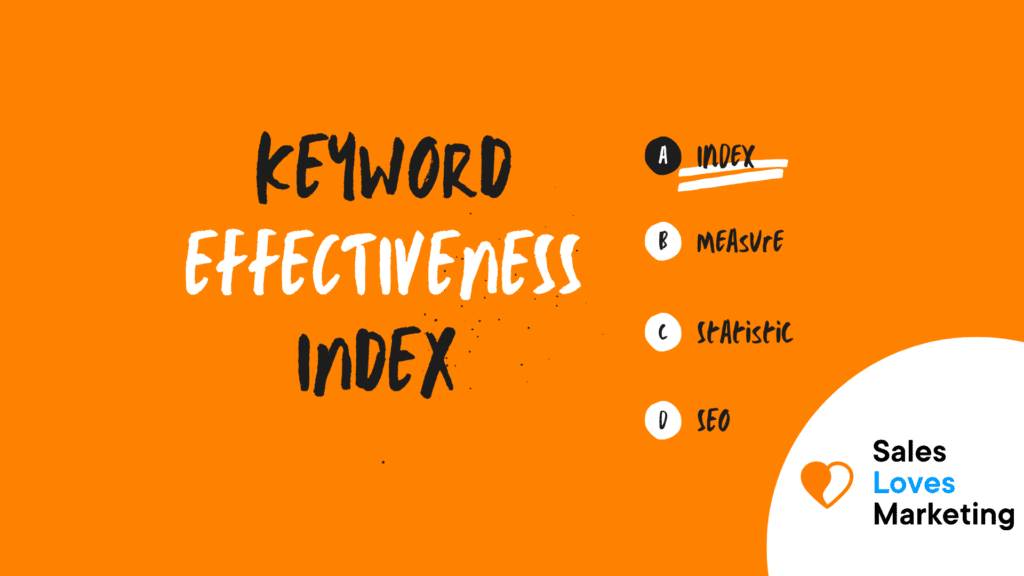What is Keyword Effectiveness Index (KEI)?
KEI stands for Keyword Efficiency Index, or Keyword Effectiveness Index, which is an important index in the field of SEO. It forms a criterion for measuring how effective certain keywords are. It’s a mathematical comparison between the number of searchers (demand) for a particular keyword and the number of pages in the index of a search engine’s competition (supply).
Why is the Keyword Effectiveness Index important?
Keywords had always been an important member of the research process for copywriters, even before search engines came to be in the current Internet era. Keyword research is an essential and important step in building a website that attracts quality traffic. It’s also necessary for gaining a better understanding of the field and how to target an audience better. With thorough keyword research, it is possible to develop better insight into resources that can promote the business’s success and get a return on investment.
The ideal scenario to look at when selecting a keyword is “high demand and low competition.” Regarding keyword efficiency indexing, the higher the KEI, the better chance to get the keyword rank on SERP.
The concept of KEI has helped many SEO experts and web owners in choosing useful and popular keywords. Here are a few ways that are possible to benefit from using KEI for optimizing your site:
- KEI helps identify keywords that are most effective in generating traffic and how much traffic is being gathered. Then, it is possible to remove the ineffective search terms and replace them with keywords that are more likely to generate organic traffic easily.
- The keyword with higher KEI will help the web owner find out their real competitors – those who have optimized their pages with the keywords they have plans with.
- By using KEI, generating traffic that’s more relevant to your niche will be possible, and that means attracting the public that likes that niche. It will be able to draw in visitors who are genuinely interested in the content or products. It means that they’ll likely accomplish a lower bounce rate and higher user engagement, thus boosting the overall site performance.
Recommended; See our SEO Consultancy Services
How to calculate Keyword Effectiveness Index?
There are some ways to calculate and interpret the KEI score. Although the process can be a bit overcomplicated, keyword efficiency indexing can provide valuable information on the keyword data if calculated correctly. The most popular formula for calculating KEI is A^2/E. Here A indicates the number of searches during a given period. In contrast, E shows the number of search results for the particular query.

What’s a good KEI?
It’s important to look at the numbers as relative values inside a field – what might be a good KEI for one field may prove not to be so useful inside another field. So, look at the relationships between the figures in the column rather than reading too much into the numbers.
KEI is a statistical formulation that reveals the most effective keyword phrases and terms for optimizing a web page. Efficiency can be many things. According to KEI, it is efficient to optimize for keywords with many searchers but only a few competing rivals.
The lower the KEI, the more popular the keywords are, and the less competition they have. That means that they might have a better chance of getting to the top in the search engines and receive a good number of searchers for the effort.
Example: Suppose the number of searches for a keyword is 821 per day, and Google displays 224,234 results (pages) for that keyword. Then the ratio between the popularity and competitiveness for that keyword is:

